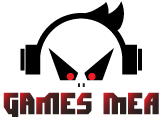Lana Meisak, VP Business Development and Marketing for Gismart share the key learnings the mobile gaming industry gained from 2020 and the opportunities that 2021 has in store
The mobile gaming industry is producing record breaking revenue year-on-year and is projected to dominate 51% of the total global gaming industry revenue that would generate over $180 billion this year. The global pandemic has had a significant influence on this, as people all over the world grapple with new ways to keep entertained whilst staying at home. In the early stages of the pandemic, for example, we saw a 200% increase in the number of active users of Gismart’s apps and games, while the average length of gaming sessions grew by 20%.
That said, even prior to the pandemic, mobile games had been growing +10 per cent year-on-year. Some genres, in particular, such as hyper-casual, had become mainstream in a matter of a couple of years, attracting one billion downloads monthly. The industry looks set to continue its impressive growth over the coming year, paving the way for a number of opportunities and challenges in the year ahead.

Lana Meisak, VP Business Development and Marketing at Gismart
Trends that started in 2020 and will continue this year
Mergers & Acquisitions
2020 saw a number of significant mergers and acquisitions of mobile gaming companies. For instance, Peak Games’ acquisition by Zynga for $1.8 billion became the company’s biggest deal in over a decade. The hyper-casual genre was a particular area of interest for investors, including the acquisitions of Rollic Games, Kolibri Games and Tencent’s investment in Voodoo, as the genre continues to grow its share in the mobile gaming market.
With the industry growing year-on-year and investment opportunities aplenty, we expect to see this interest in the mobile gaming space accelerate throughout 2021. This trend is set to be compounded by COVID-19 and the continued uncertainty around brick-and-mortar-based industries, such as manufacturing or hospitality, so don’t be surprised to see some record-breaking acquisitions. But it’s not just third-party investors that will be making moves in the coming year. Also expect to see major mobile gaming publishers acquire smaller studios in an effort to cement their market position and diversify their product portfolios.
China market charm
In terms of global resonance, the Asian gaming market continues to show an ongoing strong performance. The country has become one of the world’s largest and most rapidly growing online gaming markets; according to mobile gaming demographics for 2020, within the first half of 2020, China had grossed over 604 million gamers. At the same time, the country’s mobile gaming industry had already hit $15.6 billion in revenue, overachieving its predicted landmarks. In January 2021, it was confirmed that the number of mobile gamers in China peaked at 645 million in 2020.
Being known as players who particularly love hardcore gaming genres, the Chinese gaming audience will continue to open up to casual and hyper-casual titles. This trend is particularly prominent with the younger audience of TikTok (Doyin) and Kuaishou entertainment platforms. The platforms proved to be very effective for game publishers with regard to their marketing efforts and attracting players to the games.
Competition to shape the industry
The sharp rise in popularity of mobile gaming has caused the market to become increasingly saturated, which in turn has made it more difficult for developers to come up with innovative ideas that will resonate with a wide audience. Not only is it harder to come up with fresh ideas but developers and producers must also ensure a phenomenally quick turnaround time when releasing these games so that their audience is not taken by competing publishers, which can create a feeling of urgency.
Competition will continue to rise throughout 2021 and so it is likely that more and more publishers will develop internal tools so that, in a team with developers, they can analyse and refine their games much more efficiently. Assuming the platform is desirable for developers to work with, this will create a pool of developers that are generating games for a specific publisher and help to ensure much longer-term success.
In order to keep up with the market there will also be a desperate need for companies to diversify their product offerings, setting themselves apart from the rest of the industry. Companies such as Gismart, are expanding their portfolio by delving into the casual gaming market, in addition to their usual hyper-casual games. Companies that will succeed in such uncertain times are the companies that are future proofing themselves against any potential challenges that this year has brought and that next year may bring. Looking years into the future will ensure a secure and flexible position in the market and will allow for adaptation if any unexpected changes were to occur.
Collaboration with other industries
Last year saw the gaming industry take on a whole new role within the world of entertainment. The pandemic not only helped surge the use of mobile gaming and gaming in general but also saw a convergence with other industries seeking new and innovative ways to generate revenue. Gismart launched its Games for Artists programme, which connects music artists with their games development team, who help them to develop and publish a mobile game.
The music industry is one which has been particularly disrupted by the pandemic, and with live music events set to be postponed or cancelled for the foreseeable future, we expect a further convergence with gaming to take place in 2021. We have seen bands using gaming as a way to promote their music, such as Judah & the Lion partnering with popular music app Beat Maker Go to release custom sound packs that enables users to create new music using the band’s signature sounds. There has always been great value in artists promoting their brand and music through gaming, but there has never been a more important time to do so than now, especially with the rise of the hyper-casual gaming genre.
Preparing for the unexpected
2021 is going to be an exciting year for the mobile gaming business. Over the last year, mobile games have seen more new gamers than ever. With a growing audience and time spent playing games, we expect to see more games in hybrid genres, interesting brands’ collaborations, and growing number of M&A deals.





